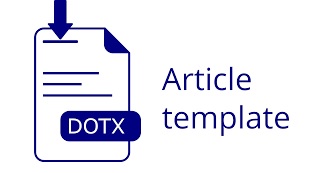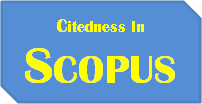Kolaborasi Pemangku Kepentingan Dalam Pengembangan Ekonomi Biru Terhadap Pengentasan Kemiskinan di Wilayah Pesisir (Studi : Indonesia)
DOI:
https://doi.org/10.30656/sawala.v12i2.9615Keywords:
Blue Economy, Collaboration, Poverty Alleviation, IndonesiaAbstract
Pengembangan ekonomi biru di wilayah pesisir memiliki potensi besar dalam penanggulangan kemiskinan. Kolaborasi antar pemangku kepentingan, baik pemerintah, swasta, LSM, maupun masyarakat setempat sangat penting untuk memastikan manfaatnya dirasakan oleh kelompok rentan di wilayah pesisir. Penelitian ini bertujuan untuk menganalisis bagaimana kolaborasi antar pemangku kepentingan setempat dalam pengembangan ekonomi biru dapat memberikan kontribusi terhadap penanggulangan kemiskinan di wilayah pesisir. Penelitian ini menggunakan metode analisis dokumen cetak dan elektronik dari internet dengan studi di Indonesia, penelitian ini mengungkap bahwa kolaborasi yang efektif antar aktor dapat meningkatkan implementasi program ekonomi biru yang berdampak langsung pada peningkatan kesejahteraan masyarakat pesisir. Penelitian ini juga menemukan bahwa keterlibatan sektor swasta dalam inovasi teknologi dan dukungan masyarakat setempat dalam pengelolaan sumber daya alam berkelanjutan merupakan kunci utama terciptanya pembangunan yang inklusif.
Kata Kunci: Ekonomi Biru, Kolaborasi, Penanggulangan Kemiskinan, Indonesia
References
Addy, N. A., & Dubé, L. (2018). Addressing complex societal problems: Enabling multiple dimensions of proximity to sustain partnerships for collective impact in Quebec. Sustainability (Switzerland), 10(4). https://doi.org/10.3390/su10040980
Almulhim, A. I., Sharifi, A., Aina, Y. A., Ahmad, S., Mora, L., Filho, W. L., & Abubakar, I. R. (2024). Charting sustainable urban development through a systematic review of SDG11. Nature Cities. https://doi.org/10.1038/s44284-024-00117-6
Ansell, C., & Gash, A. (2008). Collaborative governance in theory and practice. Journal of Public Administration Research and Theory, 18(4), 543–571. https://doi.org/10.1093/jopart/mum032
Arora, N. K., & Mishra, I. (2023). Responsible consumption and production: a roadmap to sustainable development. Environmental Sustainability, 6(1), 1–6. https://doi.org/10.1007/s42398-023-00266-9
Bingham, L.B., Nabatchi, T. and O’Leary, R. (2005). The New Governance: Practices and Processes for Stakeholder and Citizen Participation in the Work of Government. Public Asministration Review, 65(5), 547–558. https://doi.org/10.1111/j.1540-6210.2005.00482.x
BPS. (2023). Profil Kemiskinan di Indonesia. Badan Pusat Statistik, 47, 1–16. https://www.bps.go.id/pressrelease/2018/07/16/1483/persentase-penduduk-miskin-maret-2018-turun-menjadi-9-82-persen.html
Bryson, J. M. (2004). What to do when stakeholders matter: Stakeholder Identificatixon and analysis techniques. Public Management Review, 6(1), 21–53. https://doi.org/10.1080/14719030410001675722
Caparrós-Martínez, J. L., Martínez-Vázquez, R. M., & de Pablo Valenciano, J. (2022). Analysis and global research trends on nautical tourism and green coastal infrastructures: the case of coral reefs and seagrass meadows. Environmental Sciences Europe, 34(1). https://doi.org/10.1186/s12302-022-00614-2
Chen, S., De Bruyne, C., & Bollempalli, M. (2020). Blue economy: Community case studies addressing the poverty-environment nexus in ocean and coastal management. Sustainability (Switzerland), 12(11). https://doi.org/10.3390/su12114654
Dirhamsyah, D., Umam, S., & Arifin, Z. (2022). Maritime law enforcement: Indonesia’s experience against illegal fishing. Ocean and Coastal Management, 229(September), 106304. https://doi.org/10.1016/j.ocecoaman.2022.106304
Evans, L. S., Buchan, P. M., Fortnam, M., Honig, M., & Heaps, L. (2023). Corrigendum: Putting coastal communities at the center of a sustainable blue economy: A review of risks, opportunities, and strategies (Frontiers in Political Science, (2023), 4, (1032204), 10.3389/fpos.2022.1032204). Frontiers in Political Science, 5. https://doi.org/10.3389/fpos.2023.1182415
Gao, T. et all. (2022). Blue Economy and Resilient Development.
Hoegh-Guldberg, O., Poloczanska, E. S., Skirving, W., & Dove, S. (2017). Coral reef ecosystems under climate change and ocean acidification. Frontiers in Marine Science, 4(MAY). https://doi.org/10.3389/fmars.2017.00158
JB Bryson, Barbara C. Crosby, M. M. B. (2006). The Design and Implementation of Cross-Sector Collaborations: Propositions from the Literature. Public Asministration Review. https://doi.org/10.1111/j.1540-6210.2006.00665.x
Kutsyuruba, B. (2023). Document Analysis. In J. M. Okoko, S. Tunison, & K. D. Walker (Eds.), Varieties of Qualitative Research Methods: Selected Contextual Perspectives (pp. 139–146). Springer International Publishing. https://doi.org/10.1007/978-3-031-04394-9_23
Laktuka, K., Kalnbalkite, A., Sniega, L., Logins, K., & Lauka, D. (2023). Towards the Sustainable Intensification of Aquaculture: Exploring Possible Ways Forward. Sustainability (Switzerland), 15(24). https://doi.org/10.3390/su152416952
Lee, S., & Castaño-Isaza, J. (2022). Blue Economy Data and Tools. 1–64.
Lepoutre, J., & Heene, A. (2006). Investigating the impact of firm size on small business social responsibility: A critical review. Journal of Business Ethics, 67(3), 257–273. https://doi.org/10.1007/s10551-006-9183-5
Manaf, A., Purbasari, N., Damayanti, M., Aprilia, N., & Astuti, W. (2018). Community-based rural tourism in inter-organizational collaboration: How does it work sustainably? Lessons learned from Nglanggeran Tourism Village, Gunungkidul Regency, Yogyakarta, Indonesia. Sustainability (Switzerland), 10(7). https://doi.org/10.3390/su10072142
Martínez-Vázquez, R. M., Milán-García, J., & de Pablo Valenciano, J. (2021). Challenges of the Blue Economy: evidence and research trends. Environmental Sciences Europe, 33(1), 1–17. https://doi.org/10.1186/s12302-021-00502-1
Mertz, O., Halsnæs, K., Olesen, J. E., & Rasmussen, K. (2009). Adaptation to climate change in developing countries. Environmental Management, 43(5), 743–752. https://doi.org/10.1007/s00267-008-9259-3
Mukhopadhyay, R., Loveson, VJ, Iyer, SD, & S. (2020). Blue Economy of the Indian Ocean: Resource Economics, Strategic Vision, and Ethical Governance (1st Editio). https://doi.org/10.1201/9780429326004
Narwal, S., Kaur, M., Yadav, D. S., & Bast, F. (2024). Sustainable blue economy: Opportunities and challenges. Journal of Biosciences, 49(1). https://doi.org/10.1007/s12038-023-00375-x
Nonet, G. A. H., Gössling, T., Van Tulder, R., & Bryson, J. M. (2022). Multi-stakeholder Engagement for the Sustainable Development Goals: Introduction to the Special Issue. Journal of Business Ethics, 180(4), 945–957. https://doi.org/10.1007/s10551-022-05192-0
Panel, T. H. L. P. for a S. O. E. (Ocean. (2020). Illegal, Unreported and Unregulated Fishing and Associated Drivers.
Pauli, G. A., & C. of R. (2010). The blue economy: 10 years, 100 innovations, 100 million jobs. Paradigm publications.
Putri, V. Y., Janice, S. N., & Ramdhan Azzahra, T. (2022). Seeking the Opportunities and Challenges of Blue Economy Sustainable Development: A Case Study of Sidoarjo, Indonesia. 16. https://doi.org/10.3390/proceedings2022083016
Qibtiyana, M., Sastrodiharjo, I., & Hendayana, Y. (2024). The Influence of the Blue Economy on National Economic Growth. 2(2), 213–217.
Ramadass, S. D., Sambasivan, M., & Xavier, J. A. (2018). Collaboration outcomes in a public sector: impact of governance, leadership, interdependence and relational capital. Journal of Management and Governance, 22(3), 749–771. https://doi.org/10.1007/s10997-018-9401-4
Sørensen, E. (2012). (n.d.). Governance And Innovation in the Public Sector’, in David Levi-Faur, The Oxford Handbook of Governance; online edn, Oxford Academic). https://doi.org/https://doi.org/10.1093/oxfordhb/9780199560530.013.0015
Stott, L., & Murphy, D. F. (2020). An inclusive approach to partnerships for the SDGs: Using a relationship lens to explore the potential for transformational collaboration. Sustainability (Switzerland), 12(19). https://doi.org/10.3390/SU12197905
Sujiwo, A. S., & Nurlaili, N. (2024). Pengembangan Tata Kelola Ekonomi Biru Untuk Memperkuat Blue Economy Development Index di Indonesia. Jurnal Perikanan Dan Kelautan, 13(1), 67. https://doi.org/10.33512/jpk.v13i1.23726
Symons, K. (2024). The blue economy. In The Companion to Development Studies. https://doi.org/10.4324/9780429282348-57
Tailor, F., Shukla, A., & Trumbic, I. (2021). Relevance of Marine Spatial Planning in coastal zone management planning: Opportunities and challenges in Indian context – case study of Odisha. Journal of Earth System Science, 130(2). https://doi.org/10.1007/s12040-021-01574-6
The European Union Blue Economy Report (2020).
Tirumala, R. D., & Tiwari, P. (2022). Innovative financing mechanism for blue economy projects. Marine Policy, 139(April 2020), 104194. https://doi.org/10.1016/j.marpol.2020.104194
Vrontisi, Z., Charalampidis, I., Lehr, U., Meyer, M., Paroussos, L., Lutz, C., Lam-González, Y. E., Arabadzhyan, A., González, M. M., & León, C. J. (2022). Macroeconomic impacts of climate change on the Blue Economy sectors of southern European islands. Climatic Change, 170(3–4). https://doi.org/10.1007/s10584-022-03310-5
World Bank. (2021). Oceans for Prosperity: Reforms for a Blue Economy in Indonesia. The World Bank, 1–80.
Zimmermann, A., Albers, N., & Kenter, J. O. (2022). Deliberating Our Frames: How Members of Multi-Stakeholder Initiatives Use Shared Frames to Tackle Within-Frame Conflicts Over Sustainability Issues. Journal of Business Ethics, 178(3), 757–782. https://doi.org/10.1007/s10551-021-04789-1
Downloads
Published
Issue
Section
License
Copyright (c) 2024 Petters Neldy Suyana Feoh

This work is licensed under a Creative Commons Attribution-NonCommercial-ShareAlike 4.0 International License.








